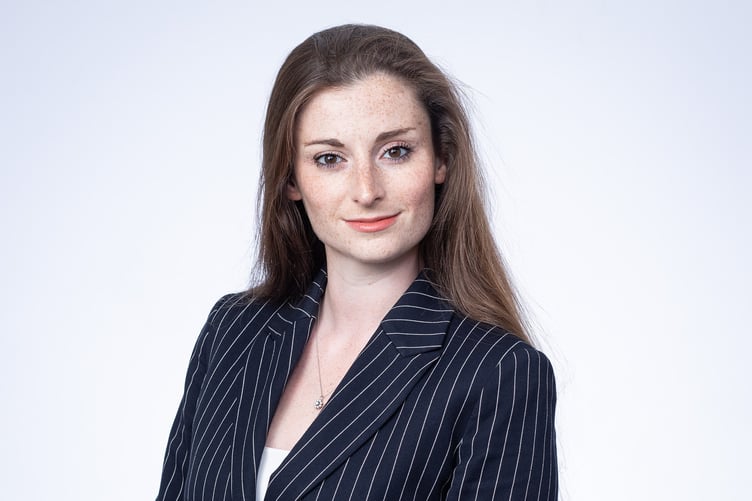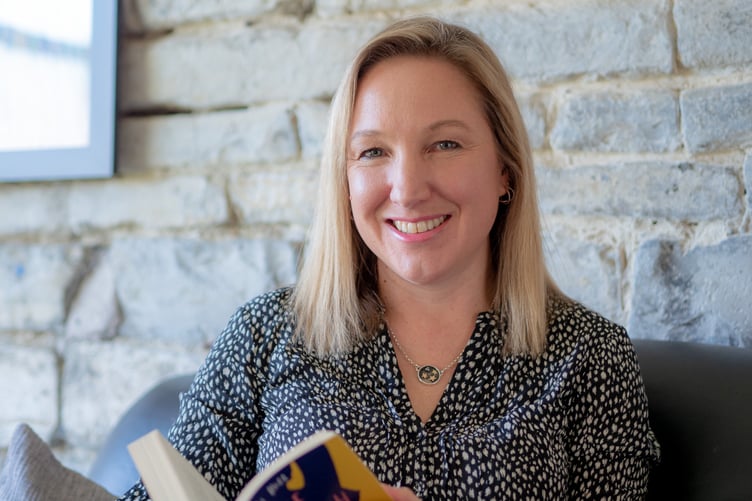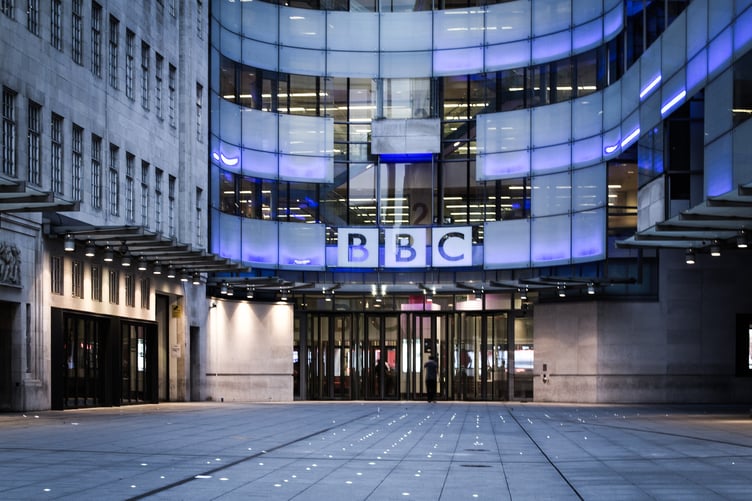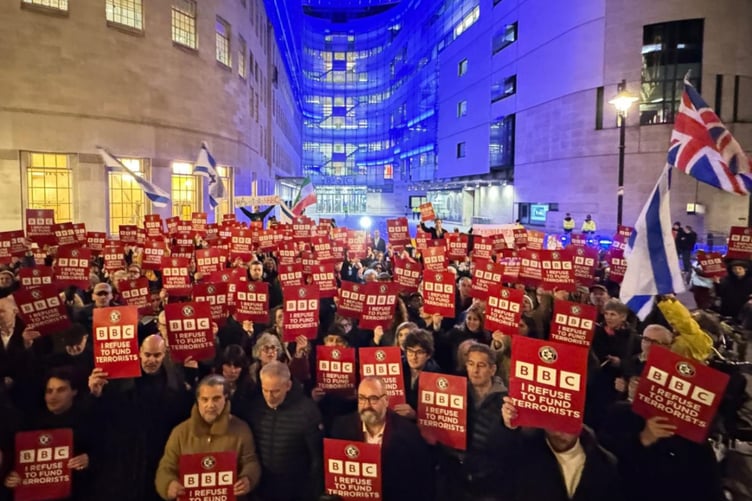ONE of the most enduring lessons I had in school concerned the lead-up to the Holocaust: how a country’s inhabitants could, by and large, be persuaded that its troubles were down to one race - the Jews. At 10 years old, I was struck by the power of propaganda - a subtle, but repeated, imbalance in news reporting and the shaping of entertainment to convey a steady message - to twist people’s thinking and provoke antisemitic feeling such as was demonstrated in the Kristallnacht riots.
All this seemed a far cry from the BBC, that comfortable, reputable, impartial corporation who had brought us ‘Time and Tune’ and the BBC Microcomputer.
Reuters Institute says the British Broadcasting Corporation is by far the most widely used source of news in the UK, online and offline, and one of the most highly trusted sources of news.
But what if the BBC has its own political agenda?
Comments to a local editor that “BBC Arabic openly favours a terrorist organisation and expresses anti-Semitic views,” and “their LGBT desk refuses to cover any stories that challenges their narrow gender ideology,” show that the corporation cannot afford to be complacent about its reputation for impartiality.
British barrister Natasha Hausdorff, UK Lawyers for Israel Charitable Trust legal director, was struck recently that an article in the Telegraph mentioning BBC bias against Israel had included the caveat: ‘whatever your personal views may be on the actions of Israel in Gaza.’ “because it’s necessarily the case,” she said, “that ordinary people’s views on Israel’s actions in Gaza have been formed on the basis of all this misreporting.”

One thing can be said for sure: the BBC is very confident about its own decisions.
On January 8, 2005, despite having received 47,000 complaints beforehand, the BBC screened the reportedly blasphemous musical Jerry Springer the Opera. A further 900 complaints followed, but the then director of television, Jana Bennett, insisted it was not blasphemous and refused to answer whether the BBC would have broadcast a similar show if it had focused on Islamic beliefs rather than Christianity.
It was this uncaring, bullying attitude, more than anything else, that occasioned a move in my household to boycott the TV licence and forgo live television in all its forms - a decision that still holds true 20 years later. That’s why recent allegations of bias, which have raised once again the question of whether the TV licence should be scrapped, are of great interest to me.
On November 6, The Telegraph published a memo by Michael Prescott, a former external adviser to the BBC, alleging systemic editorial bias and the failure of management to address concerns.
Amongst other allegations (including pushing a specific gender ideology), the memo claims that the corporation ‘pushed Hamas lies around the world’ in its coverage of the Israel-Gaza conflict.
‘Why doesn’t the BBC call Hamas a ‘terrorist’ group?’ headlines asked in 2023.
The broadcaster was taken to task by London psychotherapist Noam Sagi, son of a 75-year-old Israeli woman taken hostage by the armed group in the savage October 7 cross-border attack, for refusing to call Hamas ‘terrorists’, a term used by King Charles of the proscribed organisation. They later rejected a call by foreign secretary David Cameron to rethink this policy, with Radio 4 presenter Nick Robinson referring to Hamas as the “group [Benjamin Netanyahu] calls terrorists” the following day.
It prompted BBC world affairs editor John Simpson to tweet: “What sort of democratic government ‘demands’ that a major broadcasting organisation toes its political line?” (Operating under a Royal Charter and governed by a board, the BBC is a public corporation and the UK Government does not exercise control over editorial content.) “Terrorism is a loaded word, which people use about an outfit they disapprove of morally.”
But Cameron had argued: “If you kidnap grandmothers, if you kidnap babies, if you rape people, if you shoot children in front of their parents — what more do they need to do for the BBC to say ‘look, these are terrorists’? They really are.”
Last February, former attorney general Sir Michael Ellis accused the broadcaster’s coverage of the Israel-Hamas war of fuelling attacks against British Jews.
Then in August, 208 people from the TV and film industry called for an urgent investigation into allegations of antisemitism at the BBC, in a letter claiming that, when it comes to racism at the corporation, there is a widespread opinion that “Jews don’t count”.
Ten days after the October 7 attack, Natasha Hausdorff was supposed to have been on air but was ‘bumped’ by the News Channel’s deputy editor. The BBC had a breaking news story: an explosion near the Al Ahli Hospital, Gaza City.
The commentators the BBC were interviewing were all calling it an Israeli air strike, at the same time Hausdorff was seeing reports online that it was in fact a Palestinian Jihad rocket that had fallen short. (In the 2021 conflict, one third of rockets fired towards Israel had landed in the Gaza Strip).
“I sought to reason with him there and then… to draw out the journalistic approach to reporting news - especially issues that they could not verify… but I was consistently cut off in my explanations.
“It was rushed to air that Israel had struck a hospital and the consequences were, of course, enormous. There were riots across the Middle East and for a long time other news sources were following the BBC’s lead in reporting this false story.”
She also said a 2024 BBC report, the discovery at two hospitals of mass graves including bodies with hands tied behind their backs, implied it was “demonstrative of Israeli war crimes,” even though “the BBC knew that they had been dug by Palestinians and this was Palestinians disposing of their dead.” (She mentioned footage of Hamas executing their own civilians in this way.)
Hausdorff is convinced that it’s not a series of mistakes but that the corporation is “rotten to the core on its coverage of the Middle East.”
Prescott’s memo states of the BBC: “Claims against Israel seem to be raced to air on online without adequate checks, evidencing either carelessness or a desire always to believe the worst about Israel.”
Prescott also expressed concerns about gender ideology: “scant coverage of biological women campaigning to exclude biological men from sensitive spaces”; that “assigned at birth” was being used frequently to denote biological sex; and that male rapists and murderers were being reported as ‘women’.
Justin Webb, presenter of Radio 4’s Today was investigated by the BBC’s Executive Complaints Unit for saying “trans women” are “in other words male.”
The BBC admitted misrepresenting an NHS letter in a news item on drug-induced ‘chestfeeding’ and allowing an LGBT activist’s claim that ‘men’s milk’ is at least as good as mother’s breast milk “if not higher quality” to go unchallenged.
In her What About Women blog recently, Milli Hill wrote: “The idea that male people can ‘breastfeed’ has been significantly boosted by the BBC report, with activists such as Steph Richards continuing to tweet that it’s a viable option for infant feeding.
“It is not a viable option, and it’s wrong to involve a voiceless baby in such an experiment. Babies, like women, are not support humans for the needs and desires of men.”

Prescott said the BBC LGBTQ desk “had been captured by a small group of people promoting the Stonewall view of the debate and keeping other perspectives off-air.”
Hill’s own experience seems to confirm this. She appeared, alongside Richards, on BBC podcast Antisocial’s first ever episode, to discuss ‘Trans rights and free speech’.
Her feeling that it had been “extraordinarily weighted in one direction” were borne out by a friend and listener who calculated that:
Hill spoke 10 times, under nine minutes, suffered nine interruptions and had a question ignored; meanwhile Richards spoke 13 times, over 13 minutes, was interrupted twice, and made point which was picked up. Richards was also the first person to be asked a question by the presenter four times out of five.
On another occasion, Hill took to Twitter (now X) to complain about the BBC’s choice of words when they described endometriosis as a condition that affects “one in 10 people of any age in the UK, who are assigned female at birth.”
Nickie Aiken MP responded: “Like 51% of UK pop I was born not assigned a woman at birth. And after circa 500 periods, two pregnancies & labours & now the menopause I can confirm it ain’t no picnic so I can’t imagine what its is like to live with #endometriosis as well. #womenshealth”.
The tweets went viral, hundreds of women complained, and the BBC updated the article.
Fiona McAnena, Director of Campaigns for women’s group Sex Matters has said: “Shaping editorial standards around this sensitivity above all other considerations really gets to the heart of how the BBC is damaging its reputation and credibility.”

The above allegations have been overshadowed by the revelation that a sinister piece of editing, published in Newsnight and later in Panorama, implicated the US President Donald Trump in instigating the riot on the Capitol on January 6, 2021.
Leading with ‘So this is what we’re all getting worked up about?’ Pembrokeshire Herald editor Tom Sinclair, voiced his opinion that the BBC bias row distracts from the real story - that US President Trump’s words “started a riot”.
Describing the ‘dossier of bias’ as “more like a grievance list than a revelation” he opined: “If we’re really going to start firing people for every imperfect edit, we’ll have no journalists left.” The column was generally well received by Facebook followers, although not everyone agreed.
Sinclair argued: “The BBC’s ‘crime’ was editing two parts of his speech so the phrases appeared back-to-back, intercut with footage of the crowd heading for the Capitol. Not ideal journalism, sure – but it didn’t invent words or alter their meaning.”
One respondent saw it differently:
“But [Trump] said let’s march on the Capitol and cheer on our representatives and senators... nearly an hour later he said let’s fight, fight, fight, metaphorically, just like someone might say ‘I'll fight and fight to get my job back’. Too much coincidence for BBC to put ‘let’s march’... and ‘let’s fight, fight’ together; it was deliberate.”
Another described the edit as “literally propaganda of the worst kind.”
Nick Ferrari, whose morning show on LBC attracts 1.4m listeners every week, said: “These weren’t just mistakes; these were deliberate mis-edits.”
The BBC’s director general, Tim Davie and its chief executive of news, Deborah Turness, resigned following the revelations and the president’s threat of a $1bn lawsuit.
Davie had been at Glastonbury Festival on the day the BBC broadcast Bob Vylan’s set in which he chanted, ‘Death, death to the IDF.’
Davie also gets a mention in a newly published book by Andy Webb. Called Dianarama, the book unveils a protracted cover-up of the deception Princess Diana experienced at the hands of BBC reporter Martin Bashir before giving her 1995 Panorama TV interview.
Interestingly, in the wake of Trump’s legal threat, Davie had told staff during a briefing to “fight for our journalism.”
Davie’s replacement, Jonathan Munro, named several times in Michael Prescott’s memo, is the one who authorised a helicopter to film a police raid on the home of Sir Cliff Richard in 2014, an invasion of privacy which cost the BBC more than £2m. He also defended the splicing of Mr Trump’s speech.
In 2021, BBC Wales employed former Plaid Cymru Chief Executive Rhuanedd Richards as its editorial director; she is now the BBC’s £190k-a-year interim director of nations. This month Reform UK has called for a review into the BBC’s relationship with Plaid Cymru, with leader Nigel Farage calling it proof that “the BBC is infected with left wing bias.”
Nick Ferrari feels there is “an inherent bias” at the BBC. “I don’t think the place is being run properly.”
He said: “Years ago, it was proven by investigations by various newspapers that pretty much the only newspaper anybody ever read at the BBC was the Guardian. And when they wanted to hire staff they put job ads in the Guardian.
“Now that’s not bad in and of itself, but the people who joined because they read the Guardian and applied, they’re now the bosses. So they don’t perceive that bias because they’re all talking to themselves.”
Telegraph columnist Michael Deacon wonders if the defenders of the BBC genuinely believe it’s not biased - or “don’t want the rest of us to realise – because that bias happens to suit their own interests very well?”
It was revealed earlier this month that around 2.4 million households have cancelled their TV licence within the last five years. In 2024-25, 3.6 million households made a legal declaration that they do not need a TV licence, an increase of 300,000 from the previous year.
Sometimes this is wrongly described as ‘evasion’, but despite years of publicity to the contrary, there is no requirement for every household to have a TV licence - even if they “have equipment capable of receiving signals.”
A TV licence is, however, required by anyone who ever watches a live (real-time, not recorded) broadcast on any equipment, including a television, computer, tablet, phone or console. And while you don’t need a licence to watch a video clip on YouTube or a movie on Netflix, you do if the programme is live - regardless of the platform.
But is this fair? When the BBC is coming under so much fire for not being what it pretends to be, why should it continue to hold a monopoly on live broadcasts, regardless of whose material you’re receiving?
Watching live TV or using BBC iPlayer without a licence is a crime. Last Friday, the Mirror reported Ministry of Justice data showing that 76 people were awaiting trial for non-payment of the licence fee (one under 25, the others aged 45-64).
The UK government has the power to abolish the TV licence, which is currently tied to the BBC’s Royal Charter. However, Prime Minister Sir Keir Starmer has ruled out changes until at least 2027, when the current charter expires.
Let’s leave this with two thoughts from local Facebook users.
One states: “The BBC are funded by the public and as such should definitely be held accountable.”
The other argues: “Its funding model is hopelessly outdated and if it’s as good as they think it is, make it subscription only so the public won’t be forced to pay this ludicrous TV tax.”




Comments
This article has no comments yet. Be the first to leave a comment.